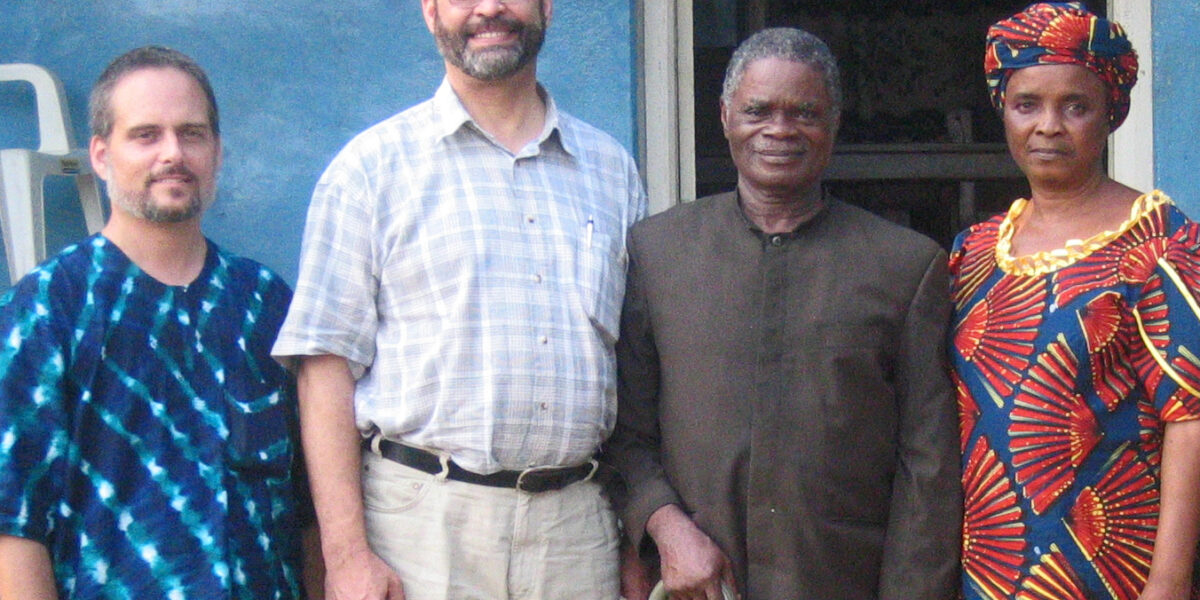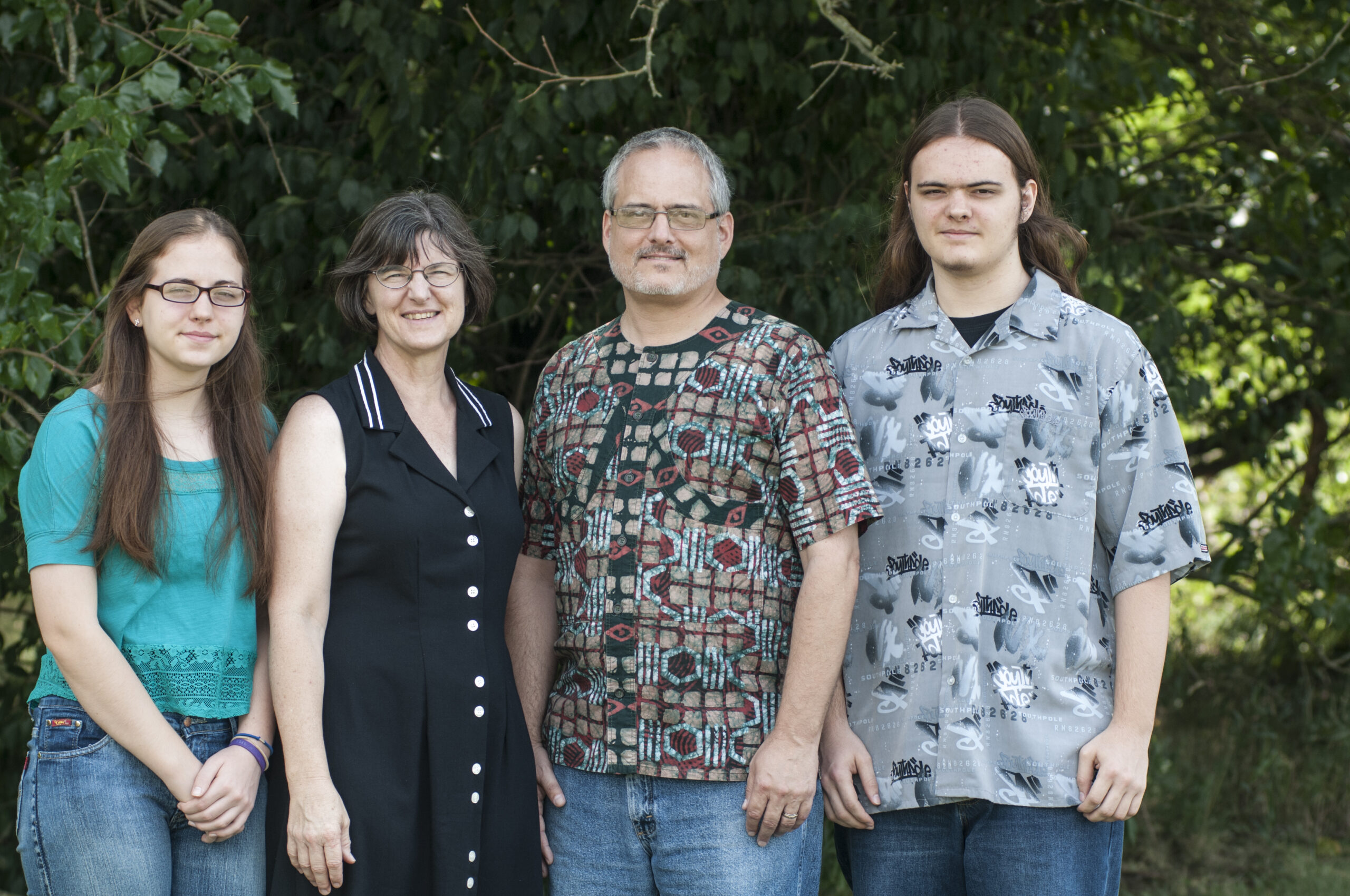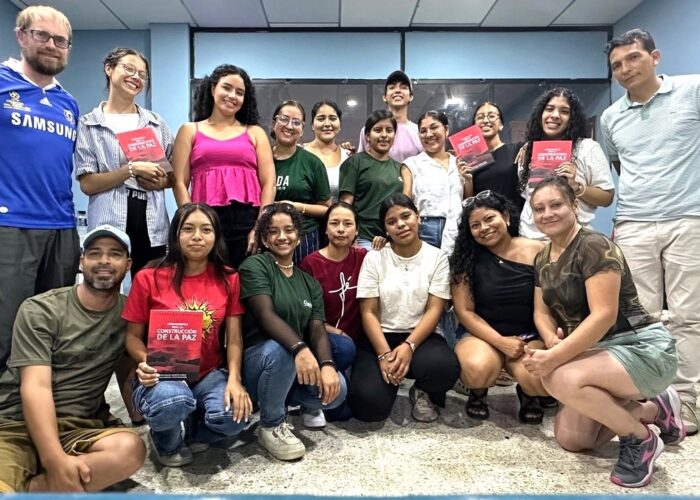IKOT OBIO AMA, Nigeria (Mennonite Mission Network) – Ime Udo Nsasak, 87, a founding member of Mennonite Church Nigeria, died at home on November 26, 2017. The funeral and burial took place on May 12, 2018, at Nsasak’s compound in Ikot Obio Ama.
Nsasak served as national secretary of the church during most of the early decades of its existence, and as national president from the mid-1990s until his retirement in 2009. He was ordained in 1975 and in 1982 became the first bishop ordained by Mennonite Church Nigeria. During his ministry, Nsasak represented the denomination in Africa-wide church gatherings and during visits to North America.
Bishop Dr. Victor UmoAbasi, who became the national president when Nsasak retired, wrote that Nsasak showed the way in collaboration between the mission agency and Mennonite Church Nigeria.
UmoAbasi wrote, “Bishop Ime Udo Nsasak was indeed a leader with a great pedigree. He was very patient. He maintained the sheep of God with utmost caution. As his successor, he would always tell me, ‘God will always speak to Moses and you are the Moses.’”
Nsasak worked closely with Mennonite missionaries before the Nigerian civil war forced many expatriates to evacuate in 1967. He coordinated the Independent Churches Leaders Meetings that missionaries organized to resource the leaders of African-Initiated Churches (AICs) and helped Mennonite Board of Missions (one of Mennonite Mission Network’s predecessor agencies) research AICs. Based on his findings, Nsasak gave presentations to increase awareness about AICs among mission church leaders and researchers. He was also a Research Assistant in the Department of Religion at the University of Nigeria at Nsukka. In this capacity, he conducted surveys of AICs in the region.
As Mennonite Church Nigeria’s secretary, Nsasak oversaw the scholarship program that Mennonite Board of Missions sponsored for high school and trade school students. He encouraged denominational growth through the establishment of new congregations and the inclusion of those who wanted to join the church. Working alongside missionaries, Nsasak helped launch agricultural projects in villages where there were Mennonite congregations.
Nsasak provided leadership during the deprivation and violence resulting from Nigeria’s civil war, 1967-1970. His home area was on the front lines of the war from July-September 1968, and several church members were killed. Nigerian Federalist troops threatened Nsasak’s life when they suspected him of collaboration with missionaries sympathetic to the secessionist cause of the Igbo state of Biafra. After the war, Nsasak counseled Mennonites to discontinue their research and work with AICs in this area, as it risked being misunderstood by government officials. He invested his energies in working to rebuild the church and devastated communities. He served on the management board of a hospital and as village head of Ikot Obio Ama during this period.
Alice and Willard Roth, who served with Mennonite Board of Missions in West Africa and in North America, wrote in tribute to Nsasak, “[his] vision for Christ’s church in his homeland stemmed from a deep spirituality. We were always aware that his holistic vision grew out of his strong sense that earthly endeavors intertwined with heavenly realities.”
Steve Wiebe-Johnson, Mennonite Mission Network’s director for Africa, appreciated Nsasak’s abilities as a peace-maker who was gifted in bringing factions together.
“He was committed to finding a way to move beyond the issues of the past and working for a better future together,” Wiebe-Johnson said.
Born in 1930, Nsasak was preceded in death by his first wife, Lawrencia Ime Nungafe. He is survived by his second wife, Grace; a son, four daughters and many grandchildren.





